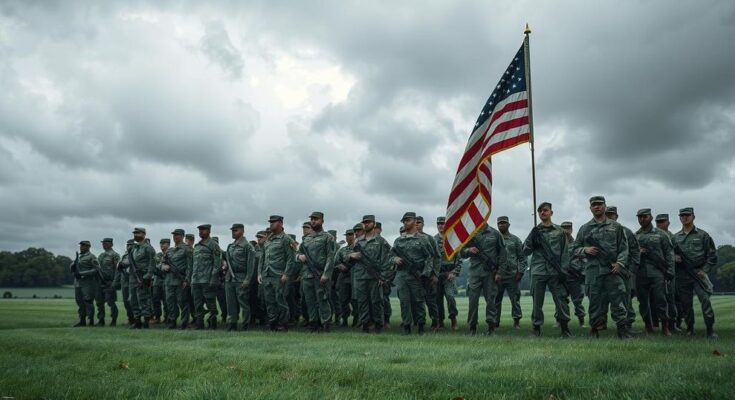North Korea has sent an additional 3,000 soldiers to Russia to support its war in Ukraine, totaling approximately 11,000 troops. The North has also provided various military equipment while an ongoing partnership continues to develop between Pyongyang and Moscow amid discussions for a potential ceasefire. The dynamic raises concerns over technology transfers and the implications of deepening military ties.
Recent reports from South Korea indicate that North Korea has dispatched an additional 3,000 soldiers to Russia to support its ongoing military operations in Ukraine. This shipment, which occurred in January and February, supplements the approximately 11,000 troops North Korea has already sent to assist Russia, with a significant number reportedly having incurred casualties in combat.
In addition to manpower, North Korea has provided a substantial amount of military equipment, which includes short-range ballistic missiles and various types of howitzers and rocket launchers. South Korea’s military has noted that such contributions from the North are likely to increase as the situation evolves.
The announcement of North Korea’s military support comes amid discussions among European leaders aimed at supporting Ukraine and promoting long-term stability in the region. Notably, negotiations are underway to establish a ceasefire; the U.S. reported an agreement was reached regarding a cessation of hostilities in the Black Sea, though Russia’s conditions for compliance revealed a stark divide in expectations.
The deepening ties between North Korea and Russia have been highlighted by recent communications, including a meeting between President Vladimir Putin’s security advisor and North Korean leader Kim Jong Un. Both nations have reaffirmed their commitment to provide immediate military aid if either were to come under attack.
The United States has expressed concerns regarding the potential exchange of advanced military technology, particularly relating to space and satellite capabilities. North Korean troops, previously stationed in the Russian region of Kursk, have experienced high casualty rates, prompting their withdrawal following a significant drop in morale.
Reports indicate that North Korea has been accommodating Russian soldiers injured in the conflict, with some attending medical facilities in the North. In exchange, Russia has been extending various supplies, including coal and food, to North Korea, while also facilitating cultural exchanges.
Amidst these developments, North Korea is exploring advancements in drone technology, including the testing of new AI-powered attack drones. South Korea has raised alarms about the implications of potential military collaborations between the two nations, especially given the increasing utilization of drones in the ongoing conflict.
As attacks continue in Ukraine, particularly involving drone strikes, authorities maintain a vigilant stance regarding the evolving dynamics of the conflict and the implications of North Korea’s involvement.
In summary, North Korea’s continued military support for Russia, including the deployment of additional troops and advanced weaponry, underscores the strengthening alliance between Pyongyang and Moscow amidst the ongoing war in Ukraine. Discussions surrounding a possible ceasefire reveal complexities and differing expectations among the involved parties. As both nations leverage their partnership to enhance military capabilities, the implications for regional and global stability remain significant.
Original Source: www.cnn.com




